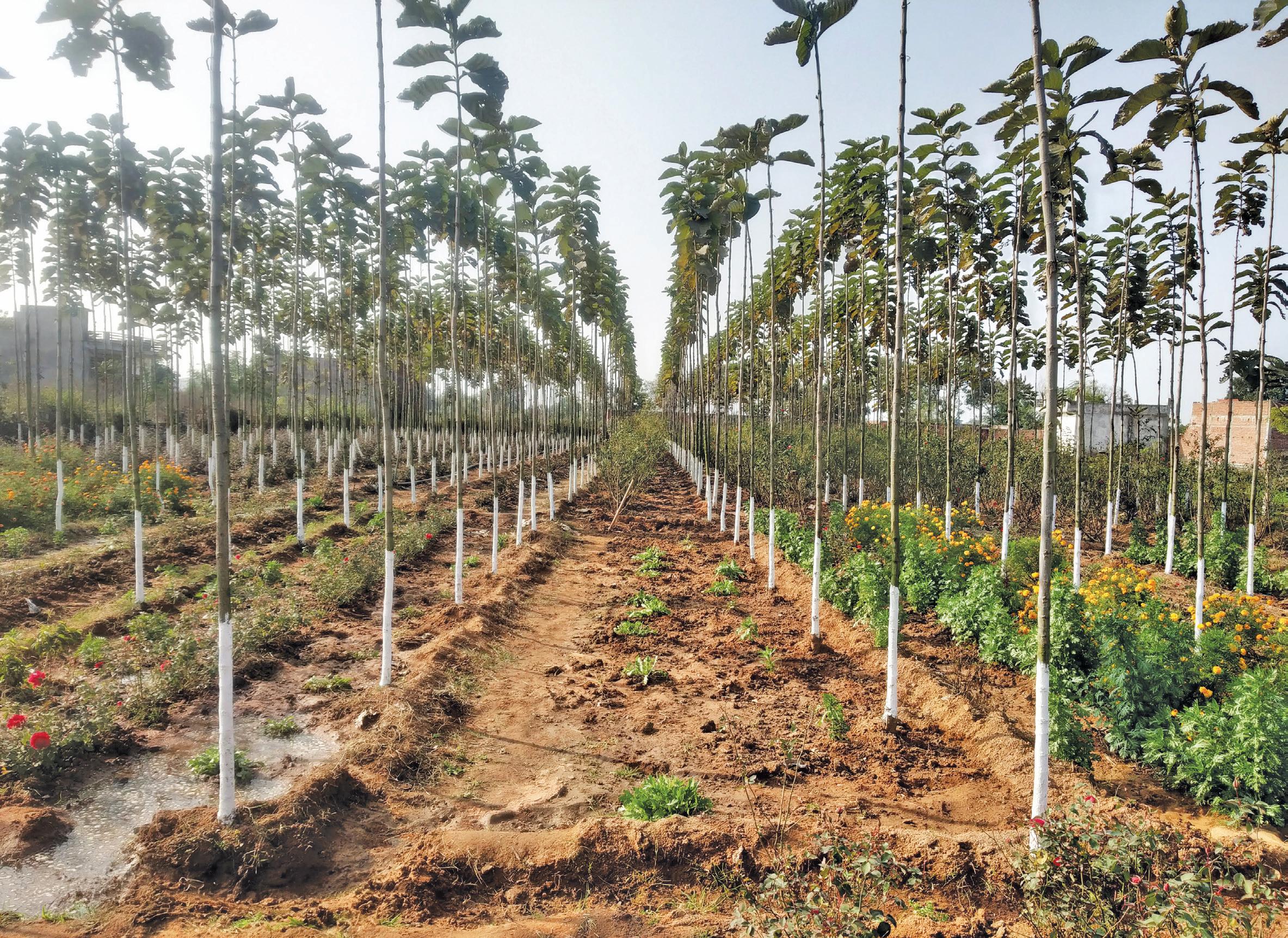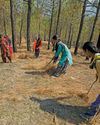
TEAK HAS been the flagship species of plantation activities in India. In fact, teak cultivation has been linked to generating substantial income not only for large landowners but also for small and marginal farmers. The rush to set up teak plantation began after the National Forest Policy 1988 was formulated. The policy imposed a ban on the felling of green trees in government-owned forests and recommended meeting the timber demand from private lands. Soon, the prices of teak (Tectona grandis) logs, valued for a variety of commercial purposes including high-end furniture, soared by over 500 per cent.
To cash in on this opportunity, many nursery owners and private agencies came up with teak planting schemes. Records indicate that thousands of companies operated in the market to promote such schemes in India.
Companies promoted tissue culture saplings, claiming that they would earn three to five times more profit than the plants grown using traditional methods from seeds and stumps. Returns were assured in the shortest time span of eight to 12 years. Some companies sold teak saplings at ₹400 to ₹2,500 each and promised returns of ₹50,000 to ₹1,00,000 per tree after 20 years. Such advertisements attracted thousands of farmers to invest in teak plantations, particularly from the rural regions of Maharashtra, Andhra Pradesh, Karnataka, Tamil Nadu and Madhya Pradesh. States such as Madhya Pradesh rolled out plantation subsidies, prompting farmers to plant teak with high density. Some private nursery owners also passed off teak seedlings as tissue culture plants. Even today, in the name of tissue culture, seed originated teak saplings are being sold at ₹100-₹250 and are claimed to provide a yield of 1 cubic metre (m³) of timber per tree in eight to 12 years, at a density of 2,500- 4,000 trees per hectare.
هذه القصة مأخوذة من طبعة March 01, 2024 من Down To Earth.
ابدأ النسخة التجريبية المجانية من Magzter GOLD لمدة 7 أيام للوصول إلى آلاف القصص المتميزة المنسقة وأكثر من 9,000 مجلة وصحيفة.
بالفعل مشترك ? تسجيل الدخول
هذه القصة مأخوذة من طبعة March 01, 2024 من Down To Earth.
ابدأ النسخة التجريبية المجانية من Magzter GOLD لمدة 7 أيام للوصول إلى آلاف القصص المتميزة المنسقة وأكثر من 9,000 مجلة وصحيفة.
بالفعل مشترك? تسجيل الدخول

THE CIRCULARITY ARGUMENT
A circular economy can help India achieve its developmental aspirations while following the low-carbon pathway. It will also help address the challenges of waste management, pollution and overexploitation of natural resources. Industries are already innovating to reuse high-volume wastes and have shown that the transition can usher in both environmental and financial windfalls

Banking on flawed drug voluntary licences
The Medicines Patent Pool is pushing for more VLs, but its bad deal with Novartis on a cancer drug shows the pitfalls

Lasting solutions
For the first time, the UN has recognised the role of indigenous communities in tackling aridity. A repository of traditional knowledge India has the wherewithal to lead the way

IMD at 150
India's journey into modern weather forecasting took a decisive turn 150 years ago with the establishment of India Meteorological Department during the British rule. The agency has come a long way since then, shaping the way the country predicts and responds to its diverse climate challenges

Every drop counts
In drought-prone Marathwada region, 14 villages have managed to counter water shortage by budgeting the resource

Threat to survival
Hollongapar Gibbon Sanctuary in Assam faces ecological challenges as railway electrification and hydrocarbon exploration endanger its fragile biodiversity

'Migration is going to be a battlefield'
AMITAV GHOSH is one of the foremost chroniclers of our times. His literary sojourn includes writings on topics that range from languages to climate change to human lives. His latest book, Wild Fictions, brings some of his works on these issues under one title. In a conversation with RAJAT GHAI, Ghosh shares his views on the future of human movement. Excerpts:

Face of future
California wildfires confirm forest fires are intensifying in a hotter world, emitting substantial amounts of greenhouse gases and reinforcing global warming

Friends of the forest
Residents of 30 villages in Uttarakhand establish a model for public participation in saving forests from wildfires

Climate-crazy playbook
Just hours after his second (and final) term began on January 20, US President Donald Trump unleashed 46 presidential actions. Several of these are centred on the US' climate commitments, energy transition, migration and trade policies, and are likely to have negative global implications